The idea of sovereignty current in the English speaking world of the 1760’s was scarcely more than a century old. It had first emerged during the English Civil War, in the early 1640’s, and had been established as a canon of Whig political thought in the Revolution of 1688.
BERNARD BAILYNWhatever deficiencies the leaders of the American Revolution may have had, reticence, fortunately, was not one of them.
More Bernard Bailyn Quotes
-






-






The wielders of power did not speak for it, nor did they naturally serve it. Their interest was to use and develop power, no less natural and necessary than liberty but more dangerous.
BERNARD BAILYN -






What were once felt to be defects-isolation, institutional simplicity, primitiveness of manners, multiplicity of religions, weaknesses in the authority of the state-could now be seen as virtues.
BERNARD BAILYN -







Defiance to constituted authority leaped like a spark from one flammable area to another, growing in heat as it went.
BERNARD BAILYN -





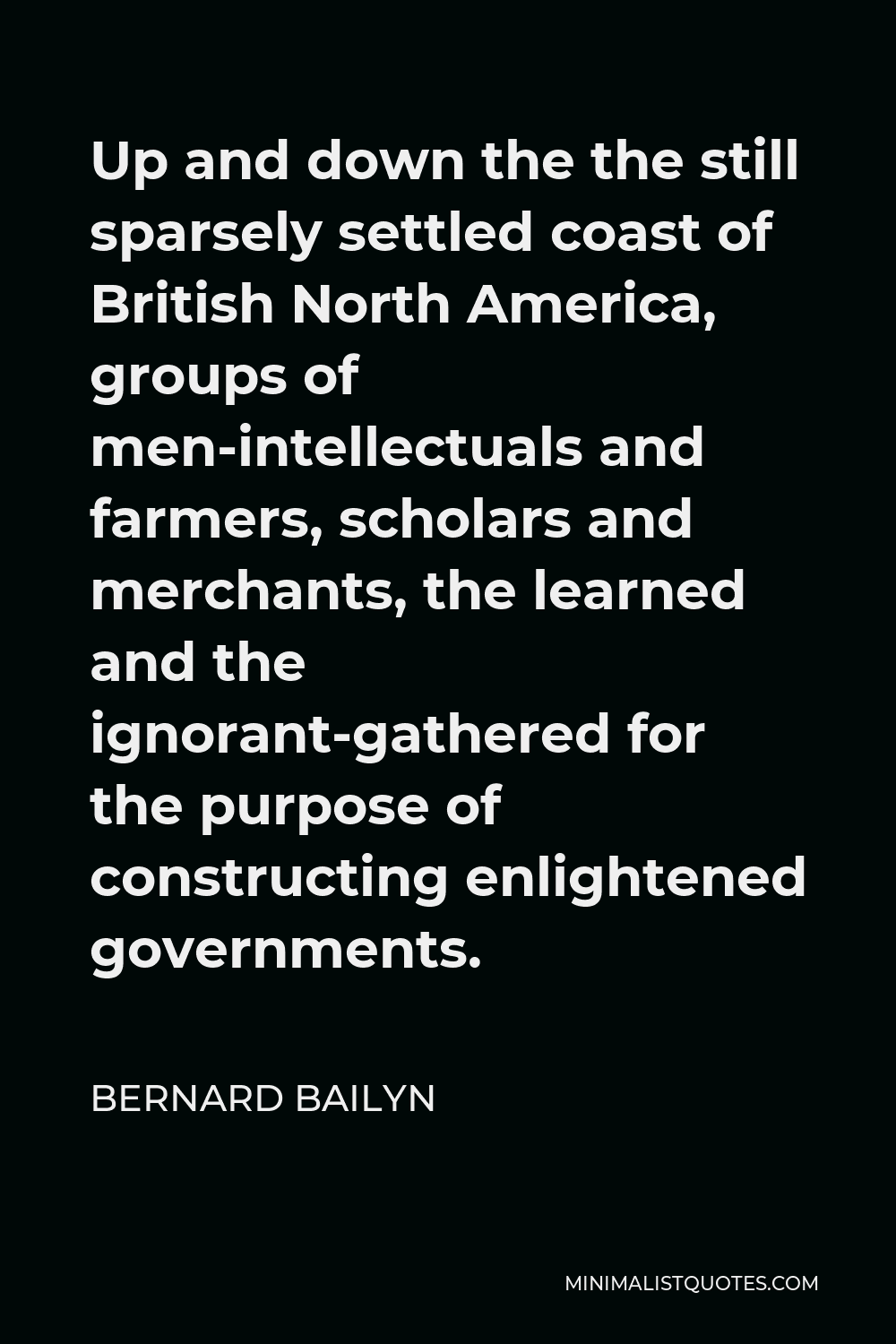
Up and down the the still sparsely settled coast of British North America, groups of men-intellectuals and farmers, scholars and merchants, the learned and the ignorant-gathered for the purpose of constructing enlightened governments.
BERNARD BAILYN -






Emerging first in the form of denunciations of standing armies in the reign of William III, left an indelible imprint on the “country” mind everywhere in the English-speaking world.
BERNARD BAILYN -





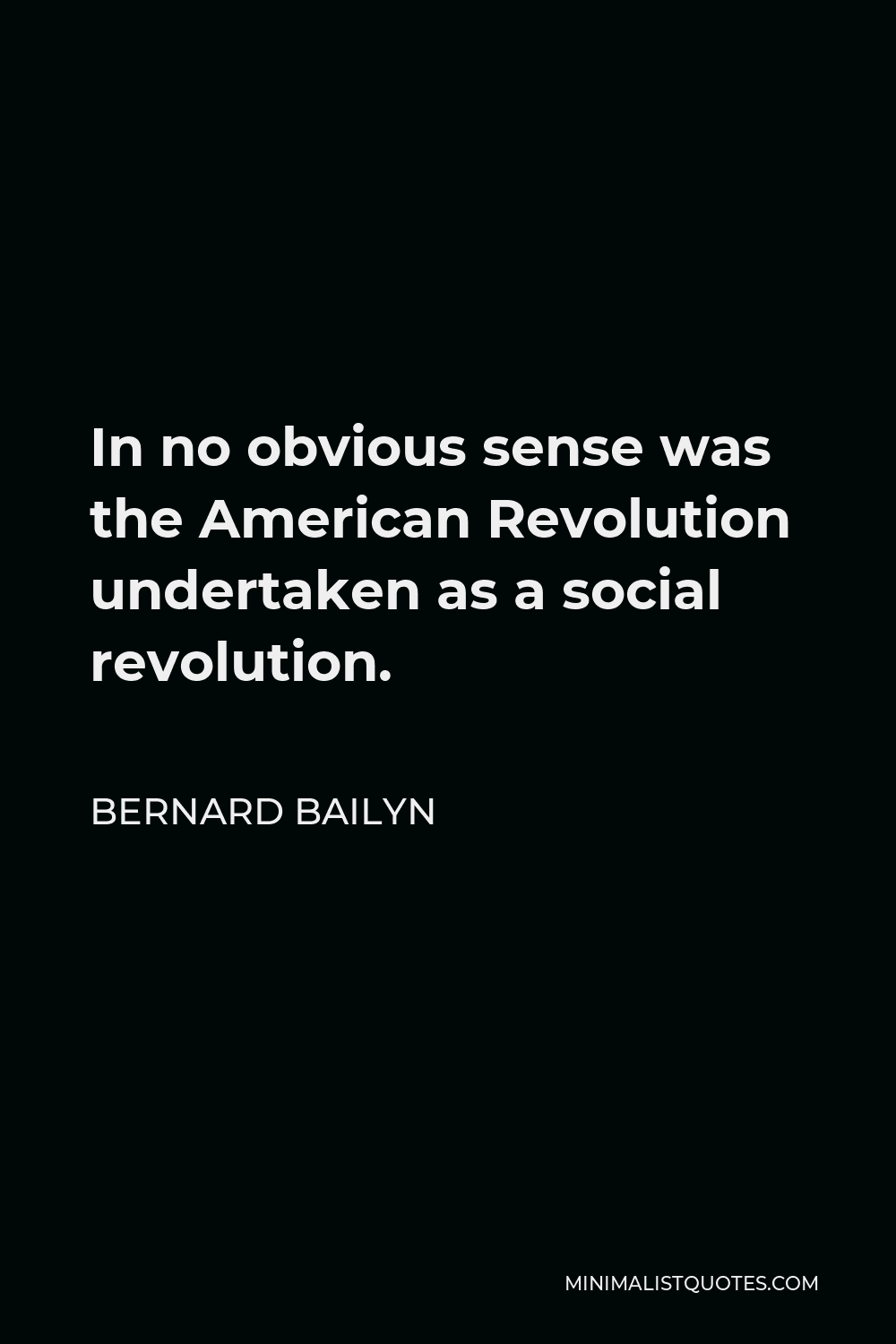
In no obvious sense was the American Revolution undertaken as a social revolution.
BERNARD BAILYN -






The fact that the ministerial conspiracy against liberty had risen from corruption was of the utmost importance to the colonists.
BERNARD BAILYN -






Incorporating in their colorful, slashing, superbly readable pages, the major themes of the “left” opposition under Walpole, these libertarian tracts.
BERNARD BAILYN -





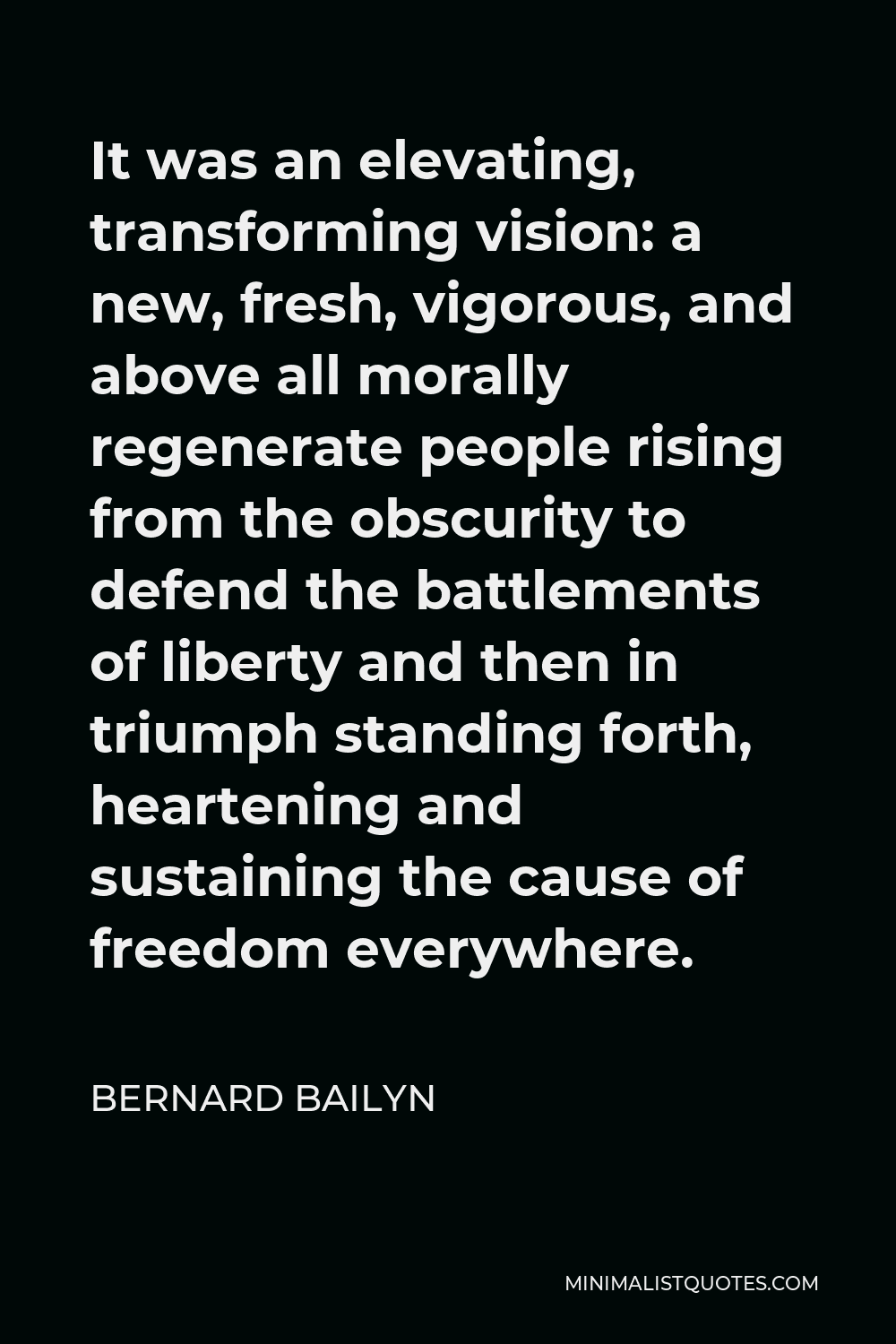
It was an elevating, transforming vision: a new, fresh, vigorous, and above all morally regenerate people rising from the obscurity to defend the battlements of liberty and then in triumph standing forth, heartening and sustaining the cause of freedom everywhere.
BERNARD BAILYN -






Whatever deficiencies the leaders of the American Revolution may have had, reticence, fortunately, was not one of them.
BERNARD BAILYN -






Not only by Americans themselves but by enlightened spokesmen of reform, renewal and hope wherever they may be-in London coffeehouses, in Parisian salons, in the courts of German princes.
BERNARD BAILYN -






Never had Parliament or the crown, or both together, operated in actuality as theory indicated sovereign powers should.
BERNARD BAILYN -





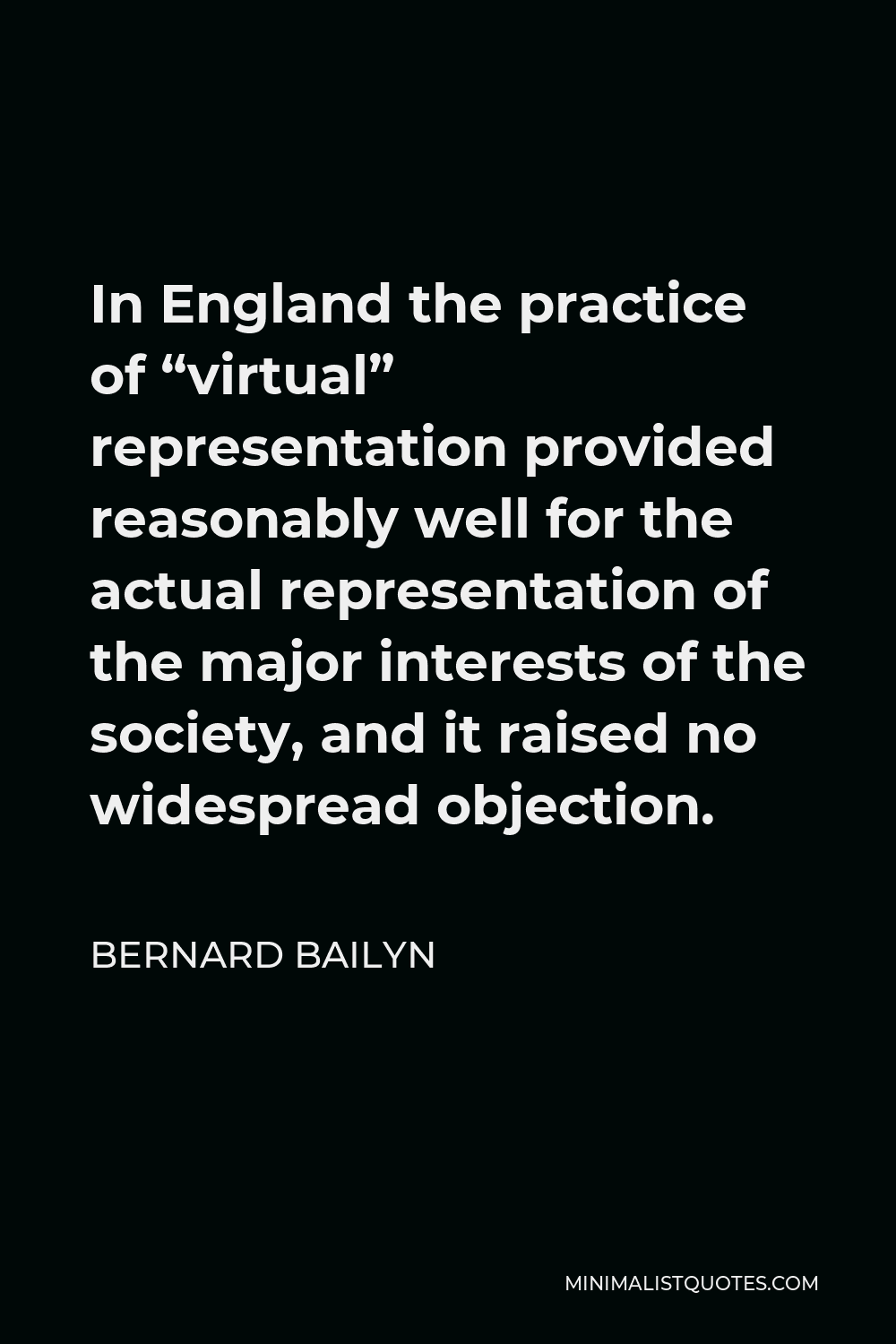
In England the practice of “virtual” representation provided reasonably well for the actual representation of the major interests of the society, and it raised no widespread objection.
BERNARD BAILYN -






The full bibliography of pamphlets relating to the Anglo-American struggle published in the colonies through the year 1776 contains not a dozen or so items but over four hundred.
BERNARD BAILYN -





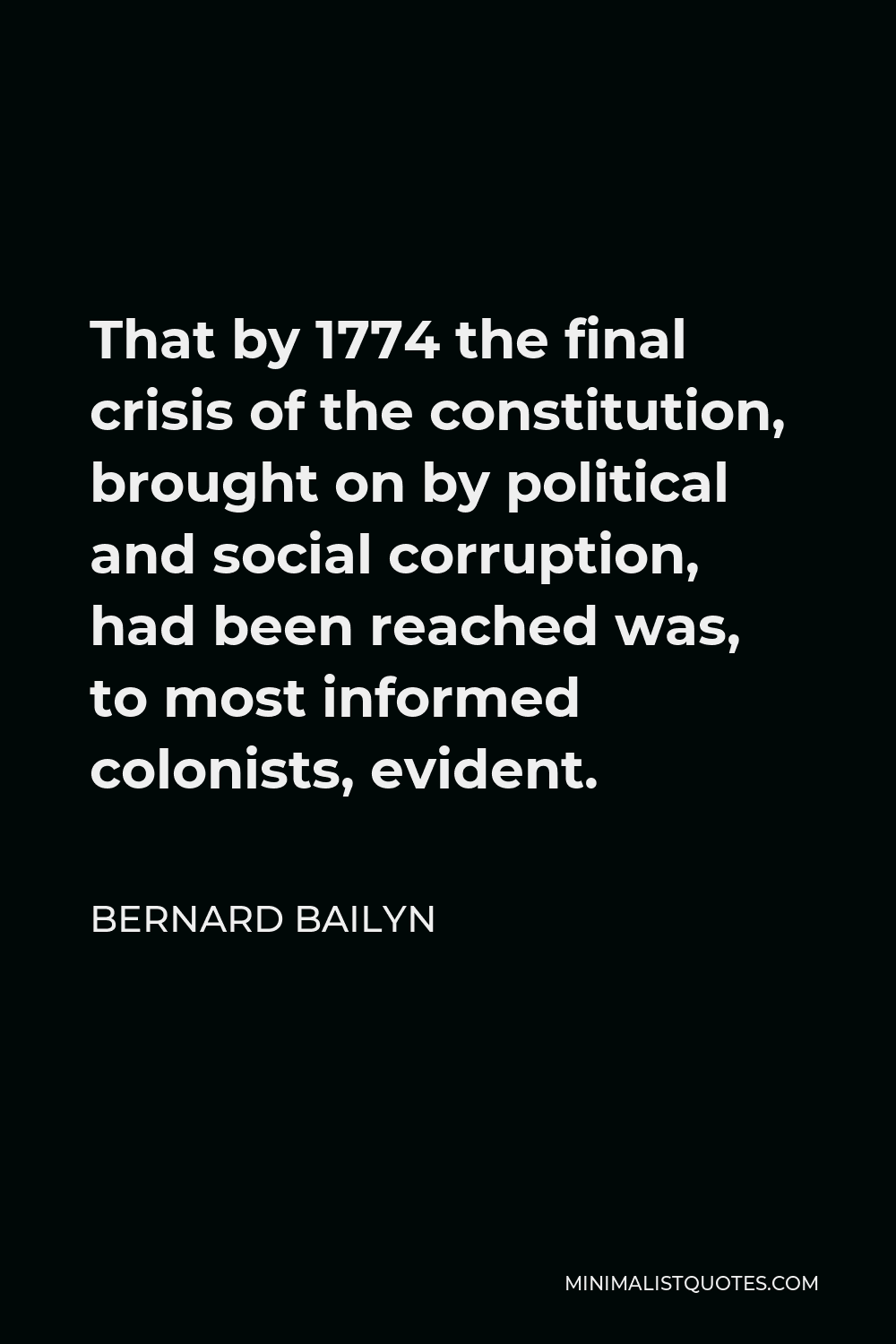
That by 1774 the final crisis of the constitution, brought on by political and social corruption, had been reached was, to most informed colonists, evident.
BERNARD BAILYN






